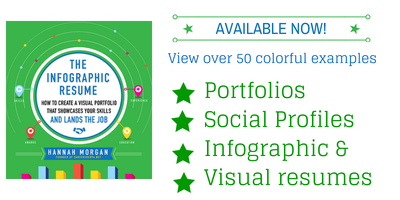Title:Learn How To Tell Your Career Story
Author:Hannah Morgan
Date:May 2019
Source:Career Sherpa - Reprinted with permission
It isn't enough to have a slick resume. You must be able to tell you career story in meaningful terms. But, this isn't easy.
We've been hardwired to believe that a resume is THE tool to use to get a job.
But, every study out there today points to employee referrals as the best source for finding jobs. A resume doesn't open many doors. Talking to people opens doors.
Networking simply means showing genuine interest and learning about someone. This is how all relationships (personal and professional) begin!
At some point, you'll be asked about yourself and what you do. Will your career story be ready?
Don't Let Someone Else Tell Your Career Story
Your story is already online...somewhere. But is that the best version of your story?
Do yourself a favor, right now, go search your name and see what appears on the first page of search results. THIS is what a potential employer will see. This is your new resume.
According to CareerBuilder 2018 survey 70% of employers research you on social media and 60% research candidates using search engines at some point during the recruiting process.
And what if they don't find anything? 47% of hiring managers said they were less likely to interview a candidate they couldn't find online, so deleting your social profiles isn't a good idea either.
And Jobvite 2016 Recruiter Nation study reported that 92% of recruiters are using social media.
Gain control and be proactive about your online visibility
But how? Simple. Build a personal website and be purposeful on social networks. LinkedIn is the obvious choice but don't overlook Facebook. Prepare Your Facebook Profile for Job Search.
Your Personal Website Is An Online Portfolio
Creating a website and owning your name as a domain makes a smart career strategy. It ensures that you will always control, to some degree, the top search results for your name and the content that appears on your pages. Personal branding and search engine optimization (SEO) at their finest!
Visual Content Is More Engaging
Our brains process pictures and images faster than text, 60,000 times faster according to some data. The added bonuses of adding visuals are that pictures engage readers and emotionally connect readers to the content!
How To Use Visuals
You can use visuals on your personal website, within your LinkedIn profile and in status updates! You can even create a presentation promoting you which you can embed in LinkedIn.
What About Infographic Resumes?
You bet infographic resumes are valuable tools to network with and WOW an interviewer. Just don't try to put them into an ATS. You don't need to have graphic design skills to build an infographic resume templates.
Order your copy and get step by step instructions and beautiful, inspiring ideas.


